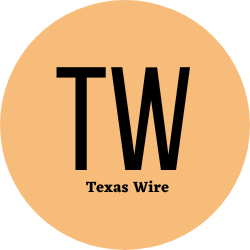Smart Debt Consolidation Strategies That Can Help
by siteadmin

Here are some things that you will need to know regarding debt consolidation. How can I find out more? How can one ensure that the information comes from reliable sources? The answers are all found in this article, so read on.
Following debt consolidation, budgeting your money wisely will help you keep future debt to a minimum. Most people get in over their heads by over spending with credit cards, so learn to work with money you have rather than borrowing. Doing this will also make it easier to pay off your debt consolidation loans and improve your credit score.
Use bankruptcy as a negotiation tool. Creditors would rather get some of their money back than get nothing at all. Let them know that if your debt cannot be reduced, you will probably be forced to file bankruptcy. This can spur the creditor to resort to a more satisfactory compromise that reduces the debt owed.
If you own your home, consider taking out a home equity loan. Since the interest on these loans is tax-deductible, you can save money in multiple ways. Provided you are able to get a good interest rate, this is a smart way to consolidate your debt into one monthly payment.
Seek the consult of a consolidation service. Talking to a credible company about your debt can help you establish where you stand. They may help you realize that your situation is not as bad as you expected. You may also find that the debt is larger than you care to deal with alone, which may prompt you to move forward with the service.
Look into whether the debt consolidation firm you are considering approaches things individually or if they use a “one size fits all” approach. Quite often, those general approaches can be pretty cheap, but it may not be the best fit for your specific need. They may even cost you more money in the long run. A custom approach is typically the best.
Communicate with your creditors as much as possible. Let them know you fully intend on paying your debt back and ask if you can negotiate. Creditors know they have more chances of collecting on your debt if they stop charging you for late fees or interests and establish small monthly payments.
Refinancing your home could be a good debt consolidation strategy. Find a financial institution willing to refinance your home and take some cash out at closing. Use the cash to pay your debt off and make your mortgage payments on time. Compare the interest rate of your mortgage to what creditors are charging you.
Know what you’re getting into. This is critical. Before you sign up for any debt consolidation program, be crystal clear about the terms. Not only that, but if you’ve taken out a debt consolidation loan, make sure you are sure that you got the best loan rate available. Find out as much as you can.
Ask for a copy of your credit report before looking into debt consolidation strategies. Go over your report to find potential errors and use it to make a list of all your creditors. If you notice any mistakes on your credit report, have them fixed before working on paying your debt off.
If you make the decision to consolidate high interest debts such as credit card balances into a different obligation, do your absolute best not to begin racking up new debt until the consolidated amount is repaid. If you are doing nothing more than moving debts to different places while continuing to spend, you will not reap the benefits that debt consolidation really can provide.
When you start learning, advice from experts are the best source. By utilizing great articles, such as this one, you can learn more on the subject. Now you probably know more about consolidating debts and can put the knowledge to work in getting you to where you need to be.
Here are some things that you will need to know regarding debt consolidation. How can I find out more? How can one ensure that the information comes from reliable sources? The answers are all found in this article, so read on. Following debt consolidation, budgeting your money wisely will help you keep future debt to…
Recent Posts
- 2 Gen Realty LLC Emerges as Top Realtor in Houston and Premier Real Estate Company in Dallas
- Advantage Local Marketing Revolutionizes San Antonio SEO Landscape
- Anew Vision: Bridging the Gap Between Addiction Treatment and Independent Living in Fort Worth
- Hill Fence Katy, TX, Sets the Standard for Exceptional Fencing Installation
- Trophy Point Realty Group: Pioneering Real Estate Excellence in Savannah GA
